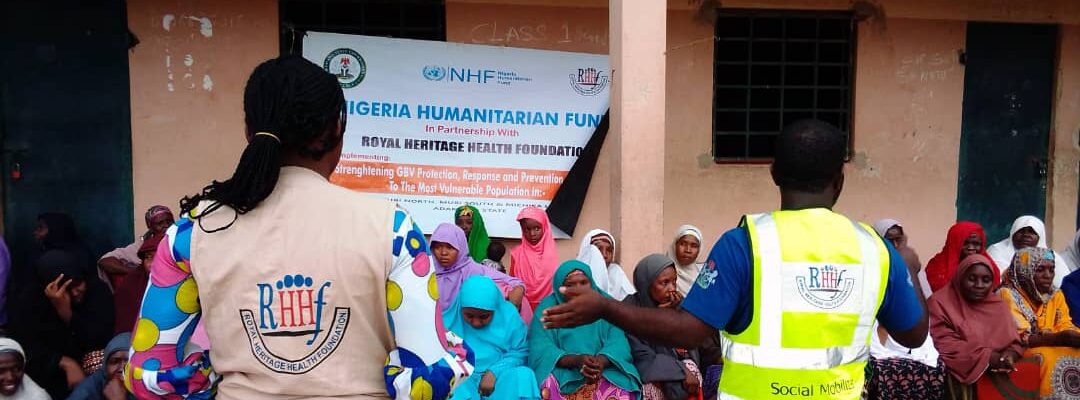Responding to child abuse and gender-based violence in Nigeria
Nigeria | 2023 | CBPF
Nigeria, Adawama state. Thirteen years on, the conflict in Nigeria’s north-east states of Borno, Adamawa and Yobe continues.
Conflict is driving a humanitarian and protection crisis affecting millions of people – including two million people who have been displaced over the years of fighting.
A major attack by a non-state armed group in June 2022 displaced many people within Adawama state, stretching basic services even further.
Alongside the displacement, gender-based violence is rising. The humanitarian crisis raises the risk of GBV; as people are separated from their communities and families, norms are disrupted, which can lead to more violence.
With funding from the Nigeria Humanitarian Fund, the Nigerian organization Royal Heritage Health Foundation opened two One Stop Centres in Mubi South and Michika local government areas. These Centres offer counselling, medical support, and connections to justice for women dealing with violence.
The programme also trained healthcare providers on clinical management of rape and law enforcement on how to respond appropriately.
“The impact of this project has been significant, bringing about positive changes in the community, empowering survivors, raising awareness and creating a safety culture. We have fostered lasting change through collaborative efforts, transforming lives and building a more resilient and inclusive society,” explained the programme lead, Adewunmi Soyege.
Moreover, the project engaged with Women Committee Leaders in community awareness talks. During their quarterly women’s forum, they committed to advocating for change in societal norms and eliminating gender-based violence in their communities.
This commitment was shared by a leader from Mubi North, who explained, “We have witnessed a tangible change. More women are reporting violence, they are accessing justice and connecting with other women survivors of violence.”
‘M’ is one woman who was able to find justice with the support of the Centre.
M was on her way home from studying for exams when she was attacked by a man posing as a security guard. With her aunt, she went to a One Stop Centre for support, where she received medical help and connected with authorities to report the crime.
In M’s case, the perpetrator was actually apprehended: although this is unfortunately not always the case, this was a positive outcome..
Adapted from original story by the NHF and Royal Heritage Health Foundation.
More information on the Nigeria Humanitarian Fund.
